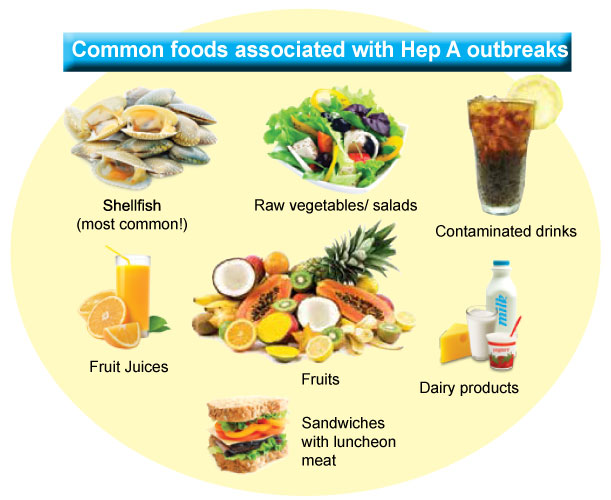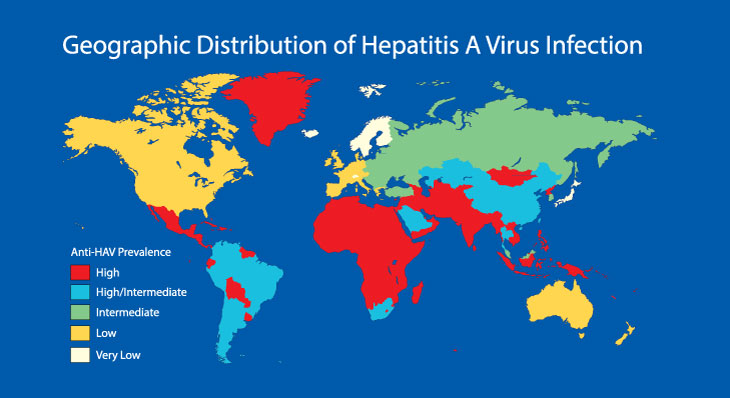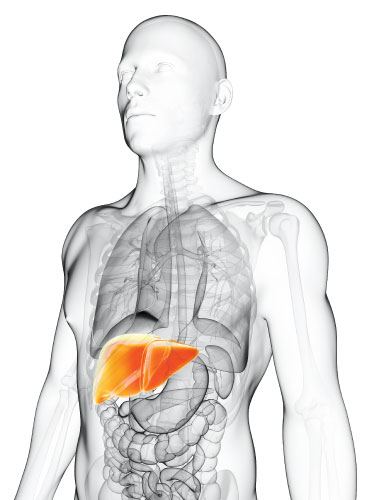Hepatitis A Facts
A contagious, rarely fatal liver disease brought about by the Hepatitis A virus.
- Estimated cases: 1.4 million every year worldwide
- Caused by lack of safe water, poor sanitation and poor personal hygiene.
- Recovery: weeks to months.
- Complications: acute liver failure.
Signs & Symptoms
- Fever, malaise and loss of appetite, diarrhoea, nausea, abdominal discomfort, dark-coloured urine and jaundice.
- Children under 6 years: usually have no noticeable symptoms and only 10% will develop jaundice.
- Older children & adults: more severe symptoms and 70% will develop jaundice.
How do you get infected?
- Eating faecal-contaminated food e.g. lightly cooked cockles/shellfish
- Close person-to-person contact e.g. sharing same facilities, sexual contact with infected person

Why so dangerous?
The Hep A virus can remain in the environment and it is capable of resisting food production processes used to inactivate bacterial pathogens.
Who is at risk?
Generally, anyone who has not been vaccinated or previously infected will be vulnerable. Other factors that contribute to higher risk include poor sanitation, lack of safe water, taking drugs intravenously, living or engaging in sexual activities with an infected person, and travelling to areas where Hep A is widespread without being immunised increases the risk of infection. Hep A infection is common in developing countries where standards of sanitation are poor and infection occurs in early life, during which they are mild.
Treatment
There is no specific treatment but care can be given to help maintain the patient’s comfort while ensuring he receives adequate nutrition and fluid replacement due to vomiting and diarrhoea. The recovery time varies and may take several weeks or months. Even though the infection does not lead to chronic infection, 10-15% of patients might experience a relapse of symptoms within six months after the recovery.
Prevention is the BEST!

- Eat at clean premises where proper sanitation is provided.
- Always wash your hands: Symptoms of Hep A infection are usually unrecognisable in children under 2 years making them a silent source of the disease. Parents and caregivers must wash their hands adequately after changing the child’s diapers before preparing or handling food.
- Avoid eating raw or improperly cooked shellfish.
- Avoid eating cold salads that have been served for a long period of time in a buffet line.
- Vaccinate if you plan to travel to an area with High endemicity (Hep A is widespread there) as there is a higher risk of becoming infected. According to the Centers for Disease Control (CDC), Malaysia is classified as an INTERMEDIATE ENDEMIC area; therefore it is still advisable to get vaccinated. CDC recommends that high risk people and all children at age one year to be vaccinated.
Don’t delay
A single dose of the vaccine could provide high protective levels of antibodies to the virus within one month after vaccination. Besides that, a single dose of the vaccine if taken within two weeks of contact with the virus could provide the protective effect. Even though the efficacy of the Hep A virus vaccine is very promising, it is better that two doses are administered for long term protection of about five to eight years.
An educational contribution by Malaysian Paediatric Association.






Comments